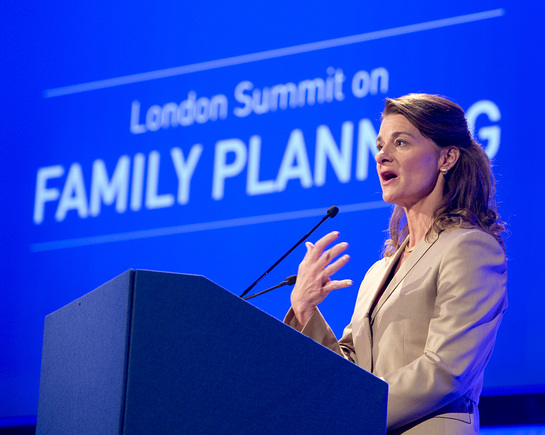Last week, Annie and Tali Lennox attended the opening of The London Summit on Family Planning.

The London Summit on Family Planning, co-hosted by the UK Government’s Department for International Development and the Bill and Melinda Gates Foundation, was an unprecedented effort that showcased innovative partnerships and leadership at the country level, empowering women to reach their full potential. The Summit underscored the importance of access to contraceptives as both a right and a transformational health and development priority.
At the Summit, it was announced that voluntary family planning services will reach an additional 120 million women and girls in the world’s poorest countries by 2020 thanks to a new set of commitments announced by more than 150 leaders from donor and developing countries, international agencies, civil society, foundations and the private sector.
“The London Summit on Family Planning is an incredible step forward for women in developing countries,” said Annie Lennox. “For years, a lack of vision on access to family planning has literally cost the lives and future opportunities of millions of women and girls. This global movement – to halve the number of women and girls who want to avoid pregnancy but don’t have access to contraception – is, I hope, the first step towards giving all women a fair chance in life.”
Melinda Gates, co-chair of the Bill & Melinda Gates Foundation, added: “When I travel and talk to women around the world they tell me that access to contraceptives can often be the difference between life and death. Today is about listening to their voices, about meeting their aspirations, and giving them the power to create a better life for themselves and their families.”
By 2020, the collective efforts announced at the Summit will result in 200,000 fewer women dying in pregnancy and childbirth, more than 110 million fewer unintended pregnancies, over 50 million fewer abortions, and nearly three million fewer babies dying in their first year of life.
The Summit has raised the resources to deliver contraceptives to an additional 120 million women which is estimated to cost $4.3 billion. More than 20 developing countries made bold commitments to address the policy, financing and delivery barriers to women accessing contraceptive information, services and supplies. Donors made new financial commitments to support these plans amounting to $2.6 billion – exceeding the Summit’s financial goal.
Access to safe, effective methods of contraception is considered one of the most cost-effective investments a country can make in its future. Studies show that every US $1 invested in family planning services yields up to $6 in savings on health, housing, water, and other public services.
Contraceptive use also leads to more education and greater opportunities for girls, helping to end the cycle of poverty for them and their families. Up to a quarter of girls in Sub-Saharan Africa drop out of school due to unintended pregnancies, stifling their potential to improve their lives and their children’s lives.
The Summit galvanized the global community to create transformational change, calling for innovative solutions and robust public-private partnerships that put women at the heart of the equation. Commitments announced today will give women more options, easier access, and improved health care.
The Summit supports and builds on the momentum created by the UN Secretary General’s Global Strategy for Women’s and Children’s Health, “Every Woman, Every Child,” and innovative public-private and civil society partnerships developed through the Reproductive Health Supplies Coalition. The Summit also aligns with the broader framework established by the International Conference on Population and Development (ICPD) almost 20 years ago.





